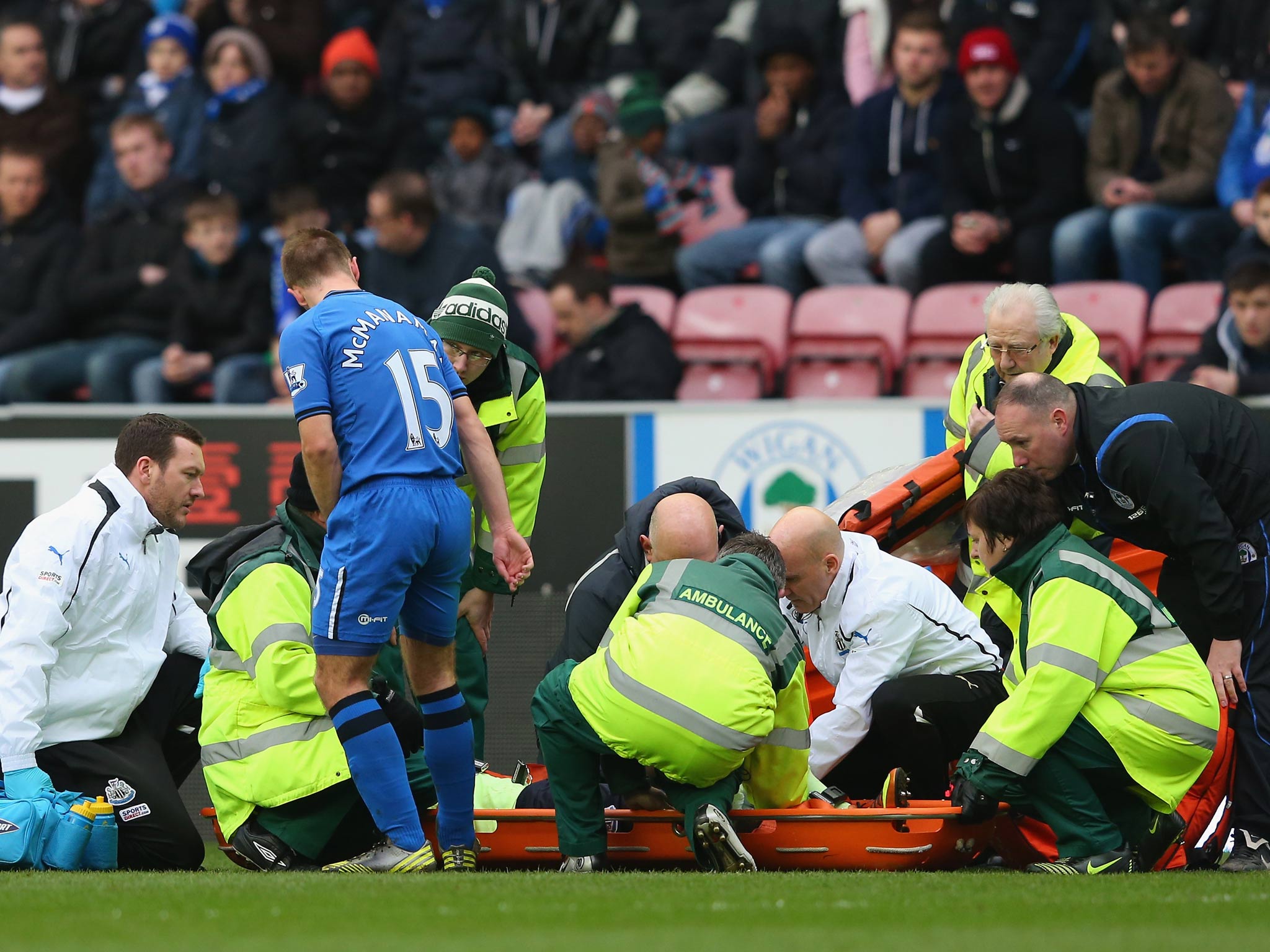Football Association amend ruling to allow retrospective action
Under new ruling, FA will be able to punish clashes that match officials are not in a position to witness

The Football Association has broadened its scope to retrospectively punish foul play.
Under an amendment to the current policy the FA will, from the start of the new season, be able to act on incidents that the match officials were not in a position to "fully assess".
Before today's change, which was ratified by the FA's Regulatory Authority, retrospective action could only be taken if none of the match officials saw a "coming together" or an incident was deemed "truly exceptional".
The move is aimed to allow steps to punish clashes such as Wigan forward Callum McManaman's tackle on Newcastle's Massadio Haidara last season, which went unpunished after referee Mark Halsey did not have a view of the incident.
With Halsey's assistants and the fourth official also not in a place to see the challenge in its entirety, McManaman escaped despite the serious threat of injury to Haidara.
In a statement issued on the FA website, the governing body outlined the changes but insisted they would be used sparingly and would not take any power away from the match officials.
"From the start of the new season, The FA will reserve the right to take retrospective action when match officials are not in a position to fully assess a 'coming together' of players," the statement read.
"Prior to this change, which was ratified by The Football Regulatory Authority, The FA was only able to take retrospective action when none of the match officials had seen the 'coming together' or when the incident was truly exceptional, for example, in the case of Ben Thatcher's challenge on Pedro Mendes (in 2006).
"This change is not intended to usurp the authority of the match officials who are, in the vast majority of cases, best-placed to deal with incidents at the time they occur.
"It will only be utilised in the rare circumstances outlined above."
PA
Subscribe to Independent Premium to bookmark this article
Want to bookmark your favourite articles and stories to read or reference later? Start your Independent Premium subscription today.

Join our commenting forum
Join thought-provoking conversations, follow other Independent readers and see their replies